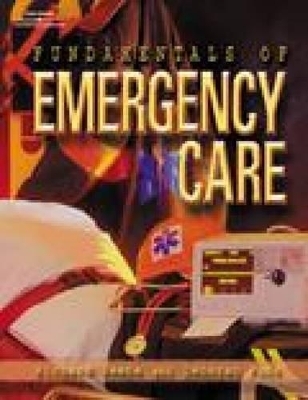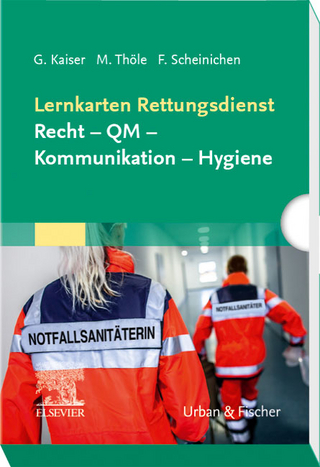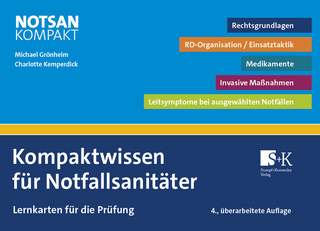
Fundamentals of Emergency Care
Delmar Cengage Learning
978-0-7668-1498-1 (ISBN)
- Titel erscheint in neuer Auflage
- Artikel merken
Section One: Emergency Medical Services. Chapter 1: Introduction to Emergency Medical Services. Chapter 2: Medical Responsibilities. Chapter 3: Legal Responsibilities of the EMT. Chapter 4: Stress in EMS. Section Two: Anatomy and Physiology of the Human Body. Chapter 5: Functional Anatomy. Section Three: Fundamentals of Emergency Medical Care. Chapter 6: Infection Control. Chapter 7: Basic Airway Control. Chapter 8: Respiratory Support. Chapter 9:Advanced Airway Control. Chapter 10: Shock: A State of Hypoperfusion. Chapter 11: Baseline Vital Signs and SAMPLE History. Chapter 12: Lifting and Moving. Section Four: Patient Assessment - General Principles. Chapter 13: Scene Size-up (Safety). Chapter 14: Initial Assessment. Chapter 15: Focused History and Physical Examination of the Trauma Patient. Chapter 16: Detailed Physical Exam. Chapter 17: Focused History and Physical Examination of the Medical Patient. Chapter 18: On Going Assessment. Section Five: EMS Communications. Chapter 19: Radio. Chapter 20: Report. Chapter 21: Record. Section Six: Emergency Medical Care. Chapter 22: Pharmacology for the Street. Chapter 23: Shortness of Breath. Chapter 24: Chest Pain. Chapter 25: Cardiac Arrest. Chapter 26: Altered Mental Status. Chapter 27: Abnormal Behavior. Chapter 28: Environmental Emergencies. Chapter 29: Poisoning and Allergic Reactions. Section Seven: Trauma Care. Chapter 30: Head Injuries. Chapter 31: Spine Injuries. Chapter 32: Chest and Abdominal Injuries. Chapter 33: Cuts and Bleeding. Chapter 34: Bone Injuries. Section Eight: Maternal Health Emergencies. Chapter 35: Prenatal Problems. Chapter 36: Emergency Childbirth. Section Nine: Childhood Emergencies. Chapter 37: Newborn Care. Chapter 38: Pediatric Emergencies. Chapter 39: Pediatric Trauma. Section Ten: Geriatric Emergencies. Chapter 40: Geriatric Medical Emergencies. Chapter 41: Advance Directives. Section Eleven: EMS Operations. Chapter 42: Emergency Vehicle Operations. Chapter 43: Public Safety Incident Management. Chapter 44: Rescue Operations. Chapter 45: Advanced Life Support Assist Skills. Appendices. Glossary. Index.
| Erscheint lt. Verlag | 5.4.2001 |
|---|---|
| Zusatzinfo | Illustrations (chiefly col.), ports. (some col.) |
| Verlagsort | Clifton Park |
| Sprache | englisch |
| Maße | 224 x 284 mm |
| Gewicht | 2270 g |
| Themenwelt | Medizin / Pharmazie ► Gesundheitsfachberufe ► Rettungsassistent / -sanitäter |
| Medizin / Pharmazie ► Pflege | |
| Sozialwissenschaften ► Soziologie | |
| ISBN-10 | 0-7668-1498-X / 076681498X |
| ISBN-13 | 978-0-7668-1498-1 / 9780766814981 |
| Zustand | Neuware |
| Haben Sie eine Frage zum Produkt? |
aus dem Bereich


